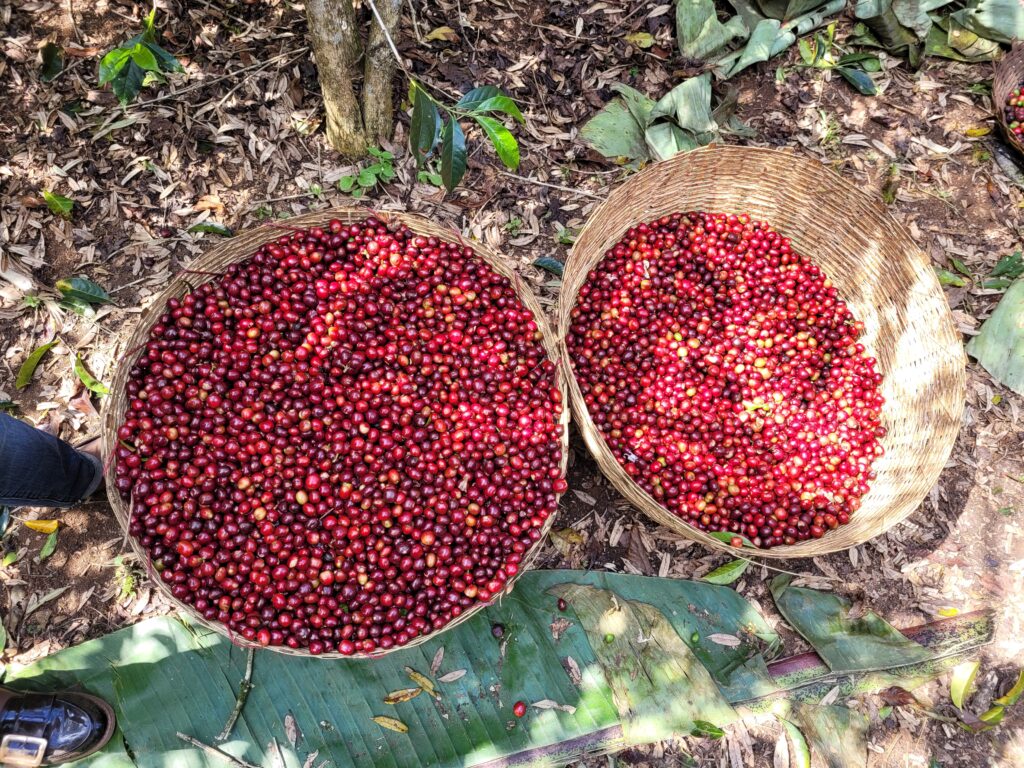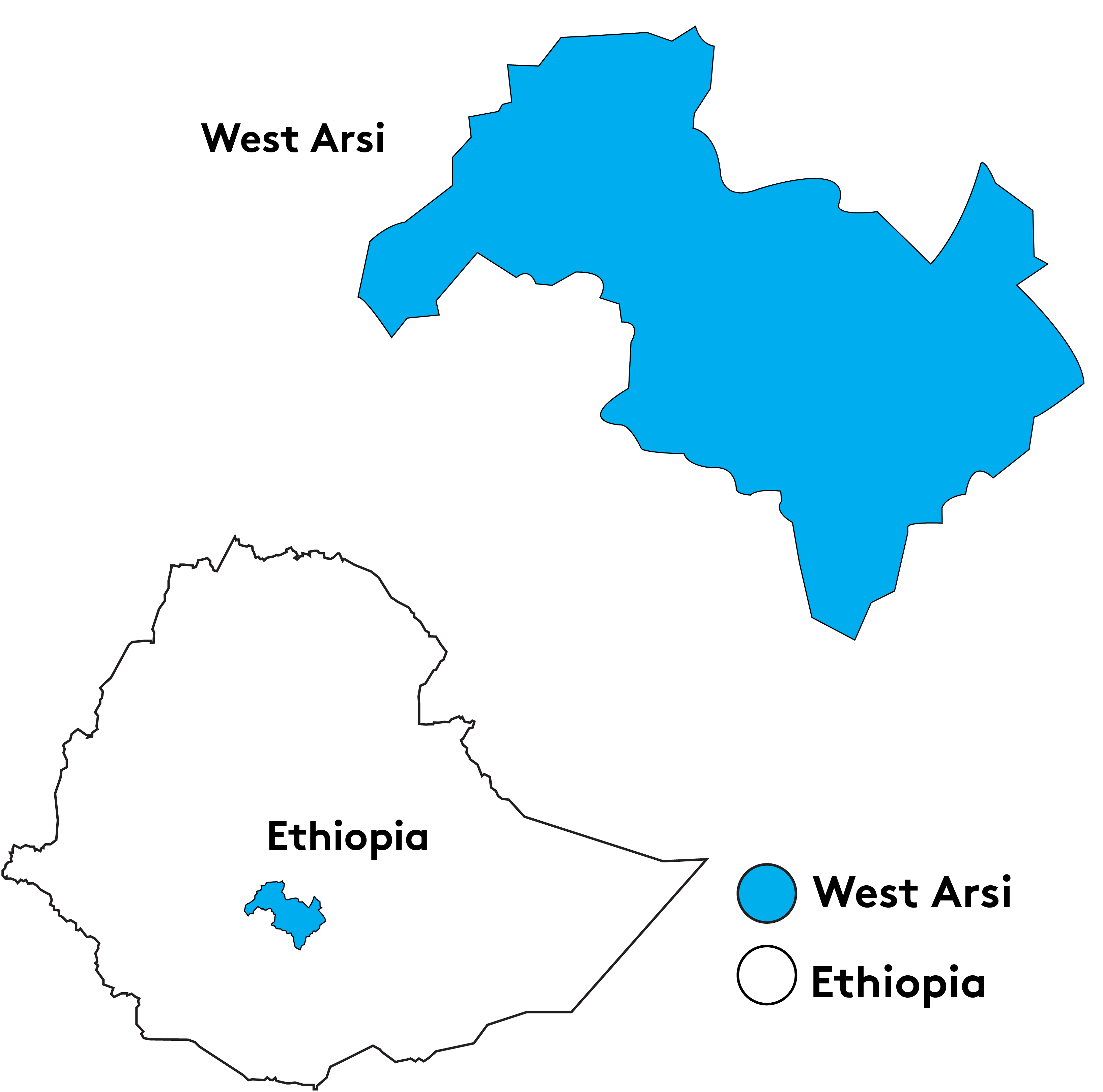This coffee was produced by smallholder producers living in the Refisa, Roricho, Bulga, and Riripa kebeles of the Nensebo woreda of Ethiopia’s West Arsi zone. Ripe cherries were delivered by 742 producers to SNAP’s Refisa washing station, which is operated by Negusse Debela who is also responsible for overseeing SNAP’s two washing stations in Worka Chelbesa.
Local farmers grow locally selected varieties 74110 and 74112, which were developed by the Jimma Agricultural Research Center (JARC) in the 1970s. Cherries are manually harvested before being delivered to the washing station. Washed processing begins with pulping the cherries and placing them into fermentation tanks where they are fermented in water for 48–60 hours. The fermented coffee is then washed, and the parchment coffee is dried on the station’s 200 raised beds for 7–10 days until reaching its ideal humidity.
This coffee was sourced from SNAP Specialty Coffee. SNAP was established in 2008 by Negusse Debela in Ethiopia’s capital, Addis Ababa. The company operates three washing stations in the Gedeo zone, and are partnered with additional washing stations in Guji and West Arsi. We began our partnership with SNAP in 2022.
As the coffee industry continues to grow in Ethiopia, the country’s historic growing areas don’t always match up with the current-day maps defining Ethiopia’s geography. Our goal is to provide the clearest and most accurate information about the coffees that we offer, and we’re proud to provide the most specific location information we have for these coffees. Learn more about Ethiopia’s coffee growing regions on our blog.
Region: Oromia
Zone: West Arsi
Woreda: Nensebo
Kebele: Refisa
ECX Growing Area: Sidama

